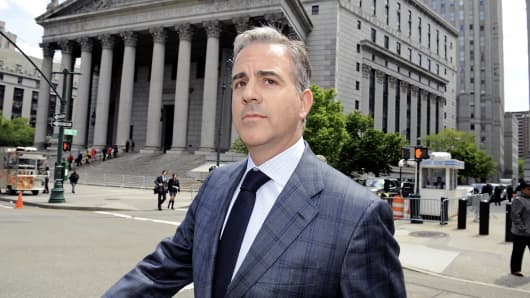For weeks now, defense lawyers and the recently convicted have been grinning like Cheshire cats. The highest federal court in New York recently took on the law of insider trading and dropped U.S. v. Newman into the lap of Wall Street, gift-wrapped and all, prompting a former hedge-fund trader to conclude, somewhat gleefully, that "the less you know about the source of the information, the better." Make no mistake, the Newman decision was a huge loss for the government but not as bad as most folks think.
For the last half-decade, criminal prosecutors have won almost every insider trading case brought in Manhattan – an impressive record for sure, but not so surprising. Insider trading prosecutions have been the government's most powerful weapon in its effort to curtail securities crimes, but there never has been an express legislative edict from Congress prohibiting insider trading. So doing what they do, courts have followed the lead of prosecutors and regulators and simply have constructed a loose, ill-defined insider-trading paradigm. Then came Newman.
Read MoreOp-ed: New insider trading rules make it 'a lot easier to cheat'
Sharpening the definition of insider trading, the U.S. Court of Appeals for the Second Circuit ruled in Newman that, in order to demonstrate insider trading, the prosecution must prove that the tipper received an objective, consequential and pecuniary personal benefit, and that the tipee knew of the tipper's benefit. In the following weeks, in U.S. v. Conradt, the U.S. Attorney for the Southern District of New York endeavored to limit the scope and impact of Newman to certain types of insider-trading cases but not others. Ultimately, construing Newman broadly, the court in Conradt refused to engage in a judicial juggling act and dismissed the charges, leaving the prosecutors with nothing but their appeal rights.
To be sure, the court in Newman has turned insider-trading law on its head, making it exceedingly difficult for the government to demonstrate criminal insider trading in many circumstances. In the last two months alone, seven high-profile insider trading cases have been dismissed or simply dropped by prosecutors in Manhattan, including Newman and Conradt. The common wisdom among some in the hedge fund community is that remote tippees and others that wrongfully disclose or trade on confidential information now do so without consequence and, to some extent, have a 'get out of jail free' card. However, that view is wrong or at least incomplete, and investment funds and their managers should not break out the bubbly quite yet, for multiple reasons.
First, the government recently filed a petition in the Second Circuit seeking a rehearing of the Newman case, both before the three-judge panel that issued the original decision and before the full court, all legal heavyweights. In the event the Second Circuit, especially the full panel, re-reviews the case, all bets are off and Newman is in play again.
Read MoreProsecutor to drop insider-trading charges over IBM deal
Second, if the government's appeals are unsuccessful, prosecutors eventually are going to figure out that Newman is the law of the land in only New York, Connecticut and Vermont. The U.S. Attorney's Office undoubtedly will bend over backwards to find a jurisdictional nexus between the next insider trading defendant and one of 47 other states, and its battery of lawyers, bathing suits in tow, likely will start bringing criminal actions somewhere warmer.
Third, Newman and its import are inapplicable where the tipped information relates to pending tender offers or foreign securities. Investment funds often deal with both.
Fourth, Newman does not prohibit prosecutors from bringing criminal and civil enforcement actions against hedge fund personnel if the individuals deliberately avoided learning the truth about the inside information and the personal benefit to the tipper. It may not be long before government lawyers and regulators more frequently pursue these "conscious avoidance" actions, arguing that remote tipees could have known, would have known, and should have known of the tipper's personal benefit had the tipees not buried their heads in the sand.
Read MoreEverything you ever wanted to know about insider trading
Fifth, there is always the very remote possibility that the legislature will step in and eliminate the personal benefit element of insider trading. While it is doubtful that the Securities and Exchange Commission would want hard and fast rules governing insider trading, anything is possible.
In the end, investment funds want to manage their risk and keep their investors, and investors want stable and profitable funds, run by honest managers. Most managers are nothing if not honest, so they probably do not care much about Newman, which benefits defendants a lot more than investment firms trading responsibly in the securities markets. For those hedge fund folks that cross the line, though, the government probably has not yet played its last card. And some people may not be grinning for long.
Commentary by Marc R. Rosen, the chair of the litigation and risk-management department of the financial-services law firm Kleinberg, Kaplan, Wolff & Cohen, P.C. Follow the firm on Twitter @KleinbergKaplan.


